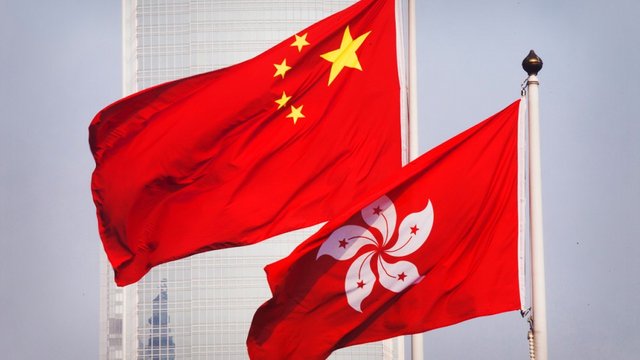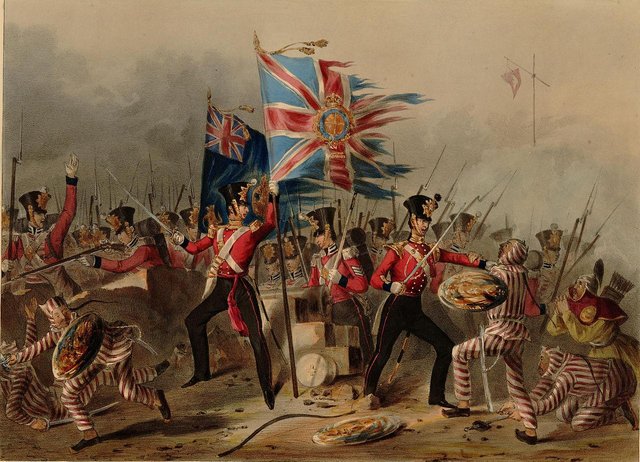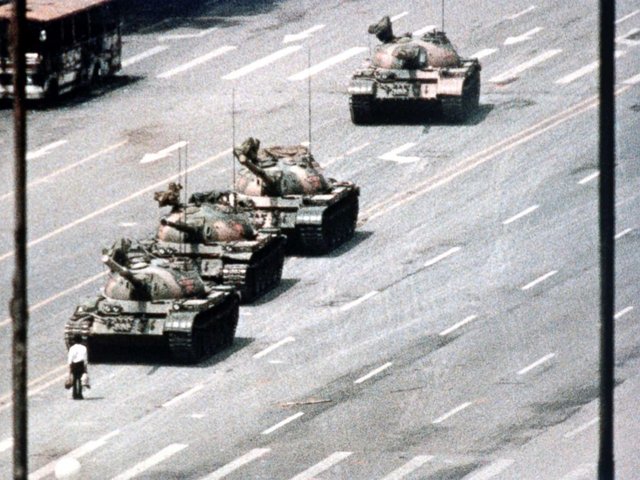Hong Kong and China - Encounter with a Chinese man

During my travels, I took a night bus from Stockholm to Oslo.
On my solo travels, I would look for opportunities to make friends. However I don't just talk to anyone.
On this bus, I boarded quite late and there were no designated seats.
"Excuse me, is this seat taken?"
An asian man looked up with the slight introverted body language, he gestured it was okay.
I subconsciously picked to sit there. (It was either him or some guy with his feet hanging on top of the stairs)
You see, in human history, people are more comfortable with others who share commonalities with them. Something they can relate with.
On first meeting, commonalities which are easiest to find are physical traits. The first thing we see.
Race is an easy one. Race associates with language and culture. Often a safe choice.
Now most of you will know that I am a little bit of a mystery box when it comes to racial identity.
Born in Australia to parents from Hong Kong.
2 years of my childhood in Hong Kong.
Another 18 odd years in Australia.
Then South Korea for 4 years.
I know more about Korean culture than Hong Kong. Perhaps more about Japanese culture too (7.5 years of the language and a minor degree).
Heck...I'm more invested in Korean culture than Australia even.
Having said that, in my heart, there is Hong Kong.
My race, my childhood, my skin, my blood.
I do care for Hong Kong because ethnically I am a Hong Konger.
My parents raised me with the Hong Kong culture.
Guangdong style Chinese food most days. Chopsticks and those Chinese blue patterned rice bowls.
The homemade bamboo sticks used to beat us when we were naughty.
Grades meant everything even though me and my sister were failures at academics.
Weekly cram school and Saturday Chinese school.
A new culture had emerged within the modern Australian culture.
The Asian Australian culture.
(There are many others because of the immigration of people from all over and the neighborhood cliques forming over the decades)
So I ought to have I invested some care into Hong Kong and it's history.
Thanks to my Asian studies in university, I gained more background history about the relationship between Hong Kong, the British Empire and China.
=========
Now back to present time.
After about 10 mins of sitting still. I decided to engage. I knew he was Chinese... but which Chinese? That was the question. And it matters.
"Hey, so are you traveling alone?"
"Yes"
Oh he speaks decent English. Good!
"Oh where are you from?"
"I'm from China"
Ok. He's mainland Chinese.
People from Hong Kong, Macau or Taiwan always distinguish themselves.
Now there has always been a little tension with mainland Chinese people. Don't get me wrong...I do have Chinese friends, but because of the difference in political views, it often gets awkward.
So we small talk a little. Turns out he's been living in Paris for 2 years doing his PHD.
Cool.
So he's not so sheltered.
After some more small talk he gathers that I have some life experience and I'm not just some kid. (People generally treat me like one because they think I'm a student in my early 20s)
Then he asks me the question.
"What do you think about Hong Kong and China?"
takes a deep breathe
exhales
Now I'm generally a pretty good apologist, so I always try to be unbiased and present both sides of the story.
I start with a little background of my connection with Hong Kong which I mentioned above.
I mentioned about censorship in China and said that I wasn't sure the extent of censorship because it seemed to vary. (I'd met Chinese people who didn't know about the Tiananmen Square massacre before)

So I briefly share my understanding of the history of the Treaty of Nanking - which was the result of the first Opium War where China lost to the UK.
Acknowledging the British as the instigators, the UK's occupation of Hong Kong as a British colony extended for over 150 years.
So far, we are on the same page. There's no hostility.
I make comparison with North and South Korea having split for roughly 70 years. They are so different now that you cannot simply just reunite without problems.
Hong Kong lived as Hong Kong for over 150 years. Not as China. With it's own governing body, own currency, and a culture which started to change with British influence.
So Hong Kongers are so different to the Chinese from mainland. Even though in 1997 they were returned, they cannot simply just assimilate.
Then I started to address the general attitude of Hong Kong towards China.
DISCLAIMER
Now this is from my personal experience and observations. I do not speak for all of Hong Kong. I do understand this is a sensitive topic and hits home for some more than others. Hopefully I've remained fair in my comments.
First of all it isn't the Chinese people that we hate. It is mainly the government.
If there are aspects of Chinese society or its people we hate, it is because of the government.
Let me explain.
The basis of a society is fundamentally in its education.
How you are taught and grow up shapes you.
Your circumstances and experiences carves your values and behaviours; who you are.
For example.
A child growing up in North Korea being taught that his/her country was the best in the world. That his/her ruler was a God.
Censorship of anything that contradicted that view. You can be guaranteed the child is going to grow up not knowing anything else and be brainwashed.
We cannot really blame the person but the system that made him/her.
But we can hate on actions and behavior of the person. (Often leading to hating on the person and judgements)
===
From my youth, I spent a lot of time reading up about atrocities that happened in China. And things that still happen. I think to myself... what the hell are those in power doing about this?
The cases of hit and runs resulting in murder.
The cases of corrupted government officials.
The cases of school brutality resulting from abuse of authority.
A government should be for the people, not against them.
I know there is no perfect government in the world because humans are imperfect and selfish.
But they should at least try.
I blame the government for not stamping out corruption. For not educating its people.
Now once again. China has 1.5 billion people. So I'm sure there are hundreds of millions of great people or more civilised people too. And we only hear about the worst. Sure. But because it happens and to that extent that shows how seriously lacking the government response is.
On the positive side we can see recent attempts of the government at controlling the bad behaviour of Chinese tourists by black listing them. This is improvement.
===
(I'm writing this in my 3rd sitting whilst waking up on my bus towards Copenhagen... So my thoughts are all over the place)
===
So I explained to this guy
About the image of Chinese people not being great and mostly the fault of the system that failed them.
I talk about how the Chinese have come to Hong Kong and some who displayed bad behaviour had spoiled it for the rest. That they are easily judged because of the volatile relationship between China and Hong Kong - the breach of the 50 years of autonomy under the terms of the handover of Hong Kong back to China. That this sparked all the nationalism and the umbrella revolution protests in 2014.
The Chinese millionaires have sprung up amidst China's economic boom in the last few decades and they are traveling around the world and buying up houses and land. (Not their fault because they can, but up to governments around the world to regulate and limit the extent of it.) Especially in Hong Kong, the most densely populated and expensive land in the world. The Hong Kong people themselves couldn't afford to buy a place because prices were rising so high because of the demand.
Similar cases happening all over the world, I told him.
Under these circumstances there was hostility and judgement from Hong Kong towards the Chinese.
Now I would've thought that because I wasn't blaming on the people because I acknowledged the potential causation being their environment they grew up with, that he would accept my stance.
However before we could talk about other interesting related topics like Taiwan, he asked me my thoughts about the 1989 Tiananmen Square massacre.
He told me about how he thought there was a greater power behind the student revolt and that greater most likely foreign power was to blame for the students death and not so much the government.
This didn't make too much sense for me.
"But...killing is never right"
He acknowledged the killing wasn't right, but he also conceded to the fact that no governments are perfect and the people should know that the government were capable of killing the citizens, so the people who riled up the students should've died instead of running away.
I understood his point. But I disagreed.
It is people like this who undermine change.
The silent majority.
Those who rather not try because they have no hope.
Of course there is always wisdom required to make decisions. You don't wage war on a government with 1 handgun. Know when to give up and when to fight. Sure.
If there were no protests in history against the governments, then things like slavery would still exist. Change happens and sometimes it takes sacrifices.
Now I don't believe the students in the massacre thought they were going to die. They were young, passionate, idealists; maybe they haven't seen the harshness of the world and they saw the hope.
The Chinese guy painted the students as inexperienced and naive. That they had been used by the foreign powers(I assume he meant Taiwan but maybe the west also). Like puppets or meat shield.
He also compared that with the students who led the umbrella revolution.
I disagreed.
The students were indeed young and naive and inexperienced. But they were not stupid.
Sure they may not have felt the grim nature of the world, the unjust and hopelessness of a broken system.
But they have something that many adults have lost.
The ideals.
The passion.
The hope.
We look at America and the high school students pushing for change in gun laws.
There are adults telling them they are naive and inexperienced too. The ones who don't want to fight and are willing to sit on the sidelines and watch as the world kill each other.
I disliked how he basically victim shamed and took away the spotlight from the crimes of the government.
He insisted on the deaths of the rally organisers for they were responsible for the deaths.
He seemed to get really passionate talking about the conspiracy behind who helped the leaders get out etc.
I likened the death of the leaders to be a hit the the moral. In general, the leader of the resistance are always valued by the resistance higher and members would always usher them to safety, so perhaps it was the case?
He didn't like it.
I asked him.
"So do you blame the leaders more or the government for the deaths. Who do you hate more for the crimes?"
"The- ok. I think if I'm honest, the leaders."
That was a fundamental difference of values and beliefs.
He asked me.
"You think the government is to be blamed for the deaths and not the leaders?"
"Yeah. More."
The look on his face was one of defeat and disbelief. As if I had just spouted something so ridiculous that there was no way to convince me.
I was still willing to continue.
It was around 1am.
The bus would arrive at 7am.
"Okay. I'm tired. I don't want to talk about this anymore."
I sensed his frustration in the tone of his voice.
"Okay", I replied.
We closed our eyes and laid in silence.
I thought about some more reasons why he would think like this.
I realise there is also a difference between the western predominately individualistic societal viewpoint verses the eastern collective societal viewpoint.
In the west we are more inclined to question and fight.
In the east we are more likely to go with the crowd, with the flow. Ask questions and you'll be punished for it.
In this sense, I could see aspects of his argument being likened to the way my relatives or even sometimes my parents argued.
In the morning, the bus arrived.
We got off.
No exchanges. No contacts.
Like 2 strangers we began, 2 strangers we left.
My hope is that he engages with more people about this topic.
He mentioned that he had never talked about this in his 2 years abroad, only once he spoke with an Italian about it who seemed to have some hk friends.
He said because it was awkward.
No change happens when no dialogue is made.
